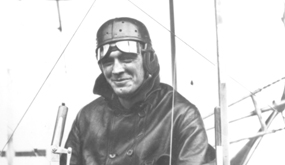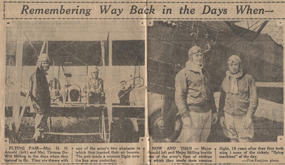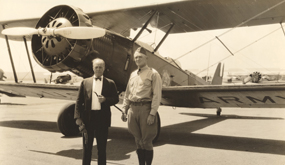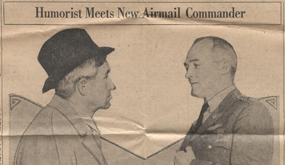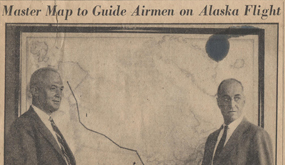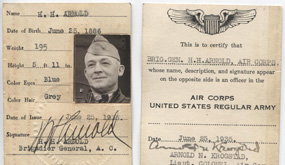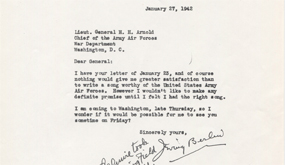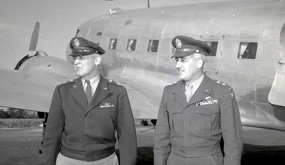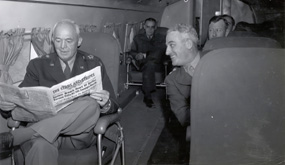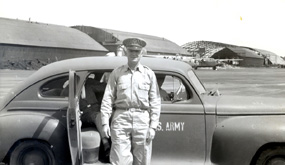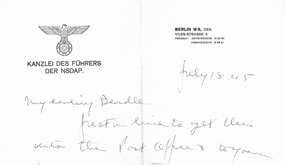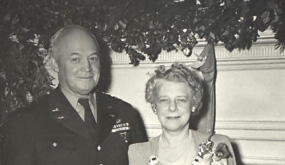General of the Air Force and pioneer airman who was taught to fly by the Wright Brothers, and commander of Army Air Forces in victory over Germany and Japan in World War II. Arnold was born Gladwyne, Pa., June 25, 1886, died Sonoma, Calif., Jan. 15, 1950. "Hap" Arnold, as he was fondly known and called, dating from his early days at West Point, was in the class of 1907 at the U.S. Military Academy.
Arnold initially was assigned to the 29th Infantry, serving with it in the Philippine Islands for two years. He returned home for two-and-a-half-years' duty at Governors Island, N.Y. until April 1911 when he was detailed to the Signal Corps and sent to Dayton, Ohio for instructions in the Wright biplane. The Wright Brothers, who had made their first flight in 1903, personally instructed him for two months, after which he soloed and became one of the earliest military aviators in June 1911.
From then on his life paralleled the growth of America's air power and he personally contributed to most of the major milestones of development during the long period until he retired in 1946. Three years later, by act of Congress, he received permanent five-star rank as general of the Air Force, the first such commission ever granted.
He retired from the service June 30, 1946, after earning most of the honors a nation can give a world military leader of his stature, including three Distinguished Service crosses, the Distinguished Flying Cross, Air Medal and decorations from Morocco, Brazil, Yugoslavia, Peru, France, Mexico and Great Britain.

